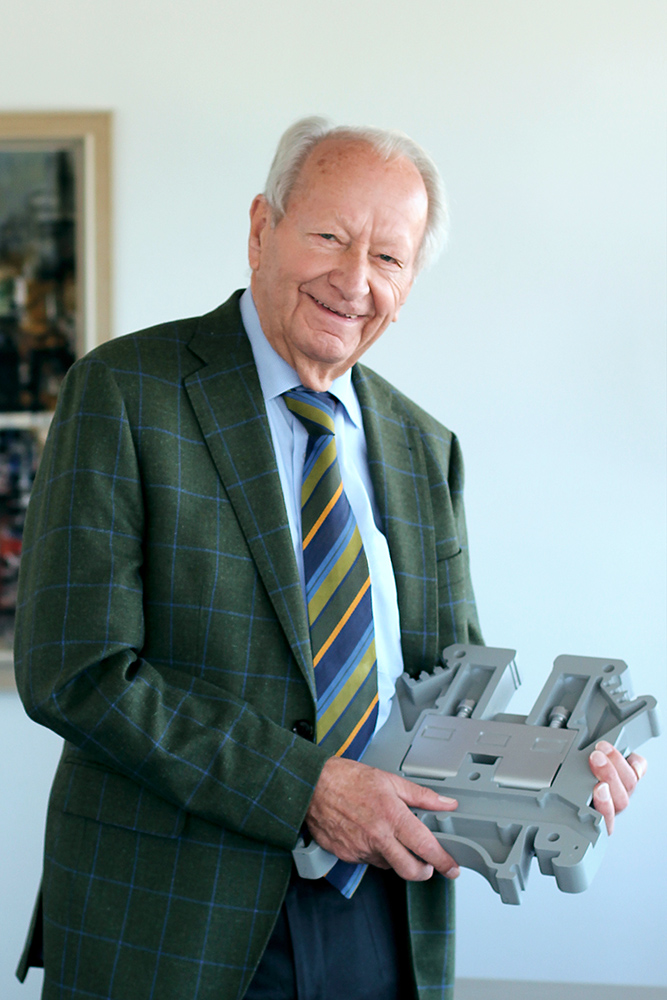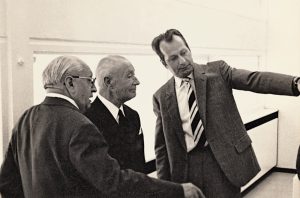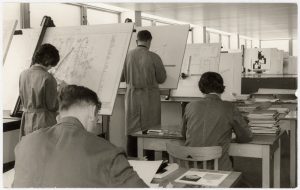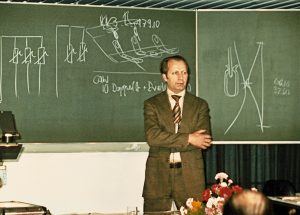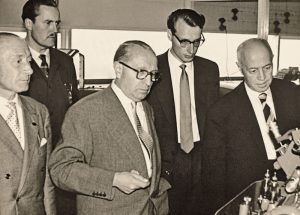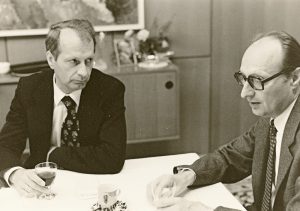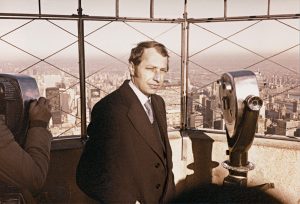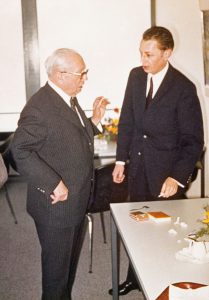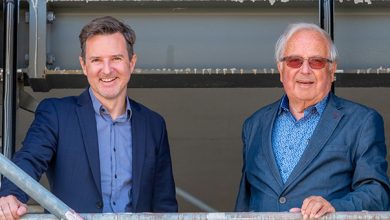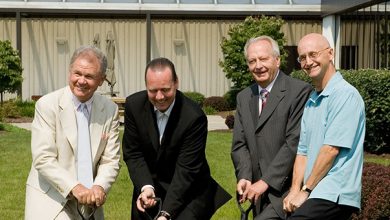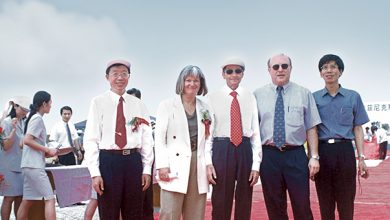All three of Josef Eisert’s sons followed in their father’s footsteps and joined the family business. Their work not only shapes the history of the company in Germany’s East Westphalian region. It also still defines the self-image and uniqueness of Phoenix Contact today.
Klaus Eisert – Engineer with a passion
If one wanted to find the perfect blueprint for a visionary, technology-minded, modest, and very successful company patriarch, Klaus Eisert would be the very first choice. Born in 1934 in Berlin Siemensstadt and later raised in the Black Forest, he followed in his father’s footsteps, studying electrical engineering in Freiburg and specializing in high voltage engineering in Karlsruhe.
In 1949, the 15-year-old met a man who would have a decisive impact on his life: Hugo Knümann. In fact, the meeting during which the Knümanns visited the Eisert family in the Black Forest lasted only a few short hours. However, in the will, Klaus Eisert was later given 15 percent of the company’s shares.
During the semester breaks, Klaus Eisert was at his father’s company in Essen’s Schinkelstrasse, working at the drafting tables of the design engineers. A passion that he remains faithful to. The tireless designer refines whatever is at hand in sketches and drawings whenever there is an idea that needs capturing. There are many more of those than “just” the more than 80 patents Klaus Eisert holds.
After Josef Eisert died in 1975, Klaus Eisert takes over both the company management and his father’s shares in the company. This makes him the managing shareholder. A position he has held for the last 40 years. Under his leadership, Phönix Elektrizitätsgesellschaft became Phoenix Contact, expanding from a small, yet mighty medium-sized company, to a global market leader with sales in the billions and subsidiaries in more than 50 countries.
Klaus Eisert not only shaped generations of engineers and technicians, but also the very special corporate culture of Phoenix Contact. This culture is characterized by human interaction, appreciative dealings with one another, and a reserved public appearance. In 2015, he succeeded in changing the top team of the Executive Board that, for the first time, is not made up of family members, but continues along the lines of the technical and business expertise as was exemplified by Klaus Eisert for decades.
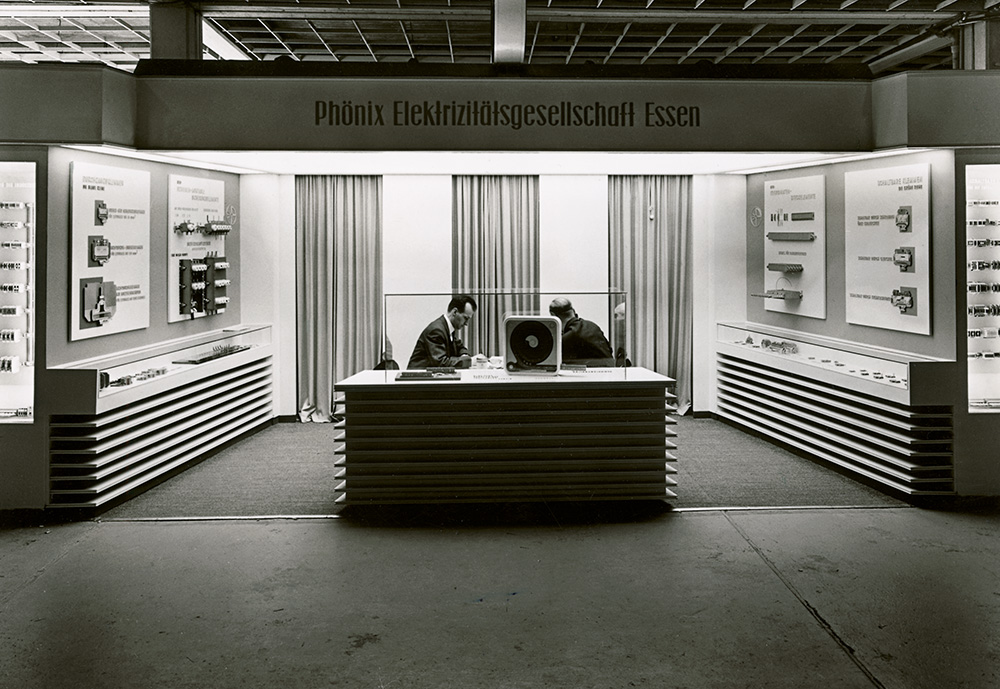
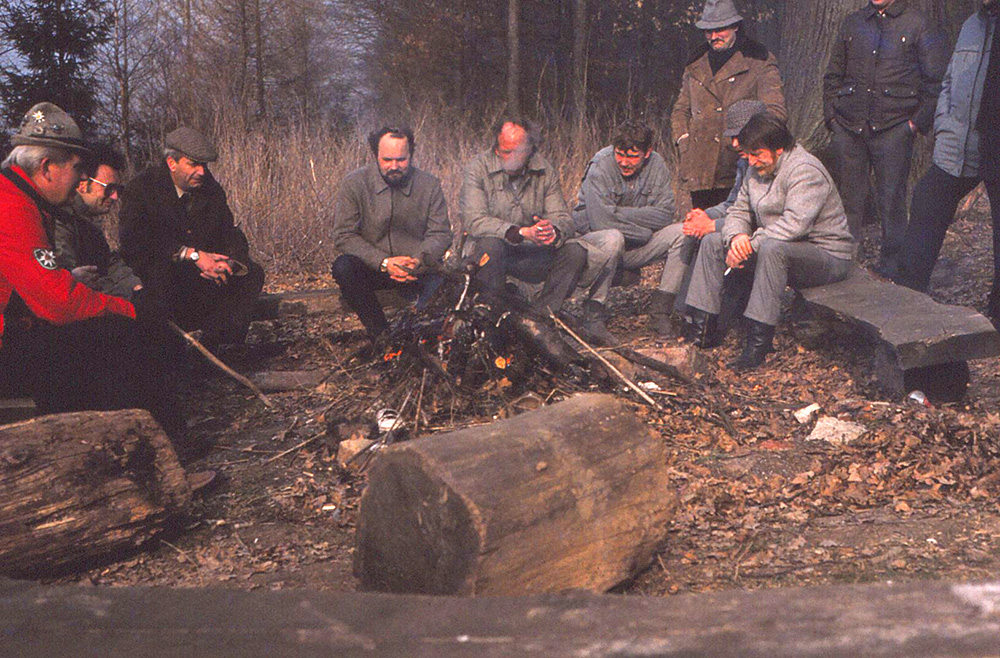
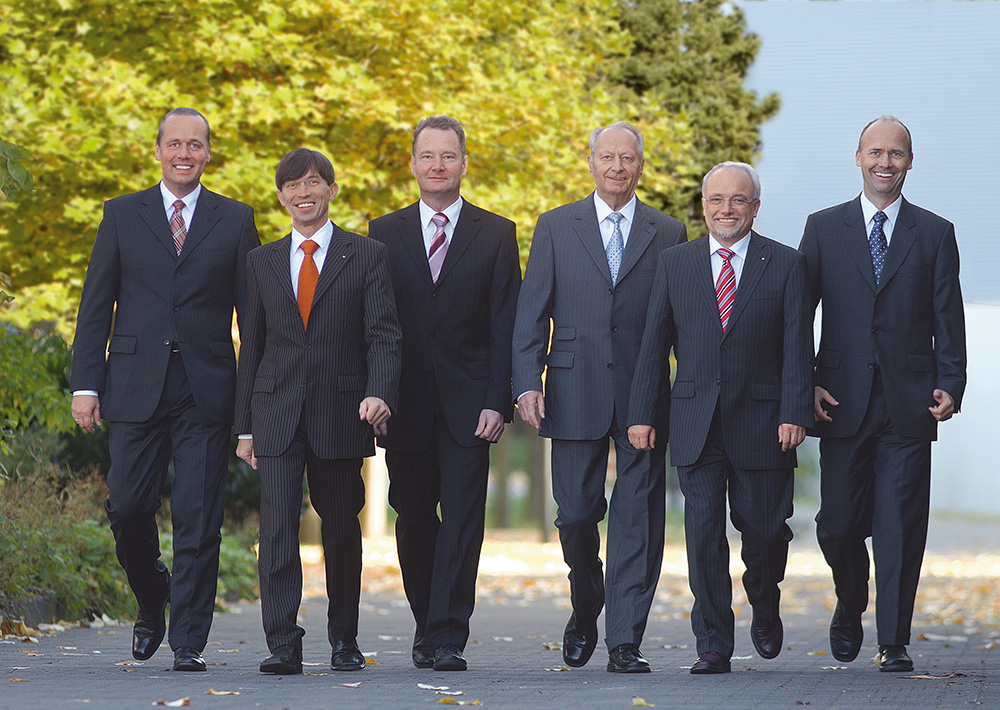
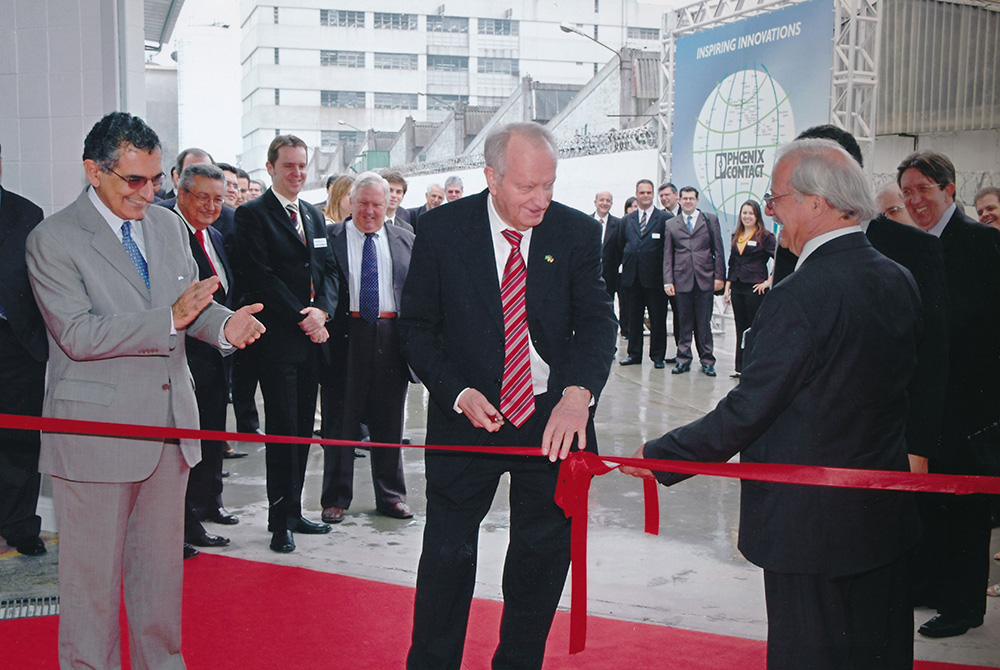
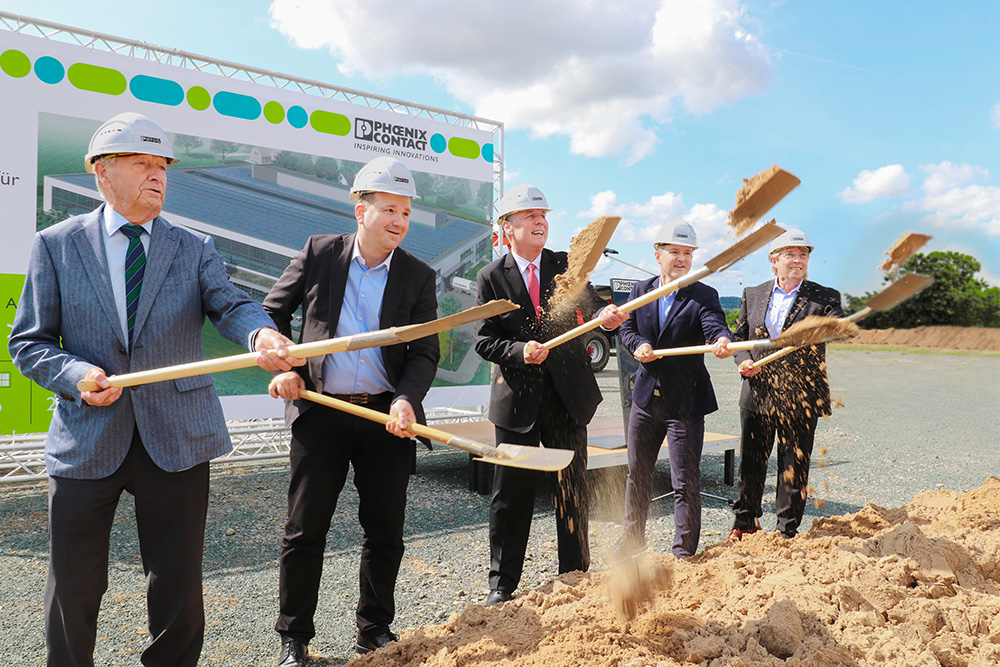
To this day, we still see Klaus Eisert out and about on the company premises almost every day. And the senior executive only slips in attendance at “his” weekly design review every Thursday morning if there is an even more important appointment to attend.
Jörg Eisert – the technical organizer
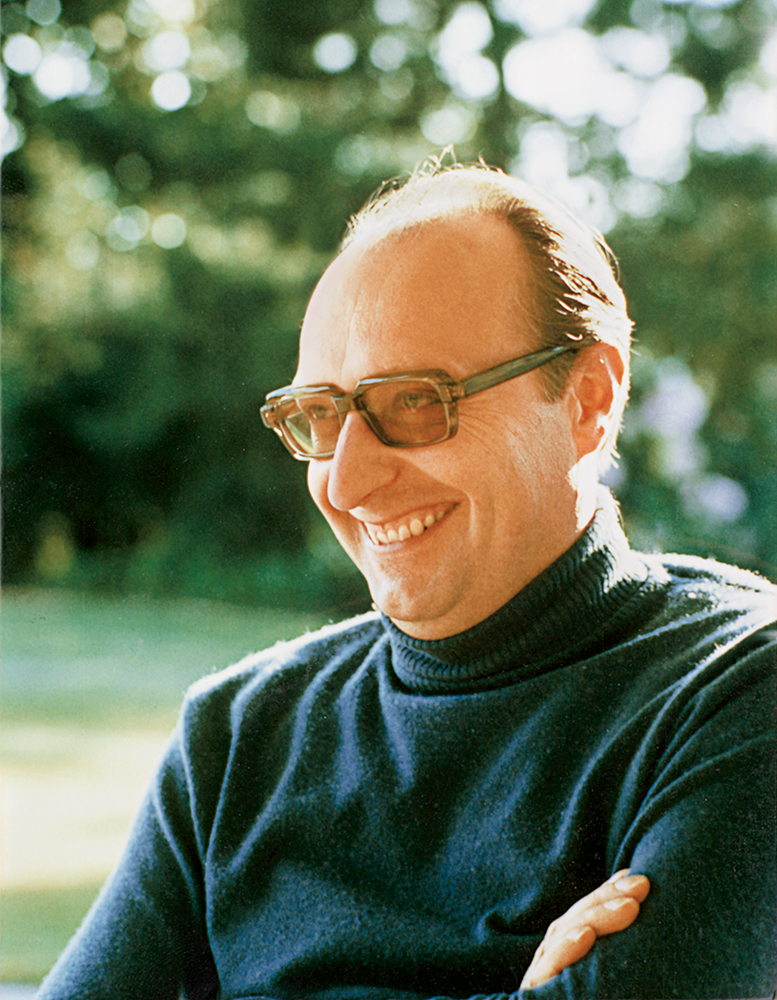
Jörg Eisert followed his older brother along his technically focused career path. Born and raised in Berlin in 1935, and relocating later to idyllic Freiburg, Jörg Eisert also completed a degree at the Technikum in Karlsruhe, two semesters after his brother Klaus. Unlike the latter, Jörg Eisert specialized in “low voltage technology,” the precursor to the world of electronics and telecommunications. During the semester breaks, the brothers got a taste of practical experience at the drafting tables in their father’s design department. Because the older brother “allowed himself” two semesters off, the two Eiserts earned their degree at the same time and started working for Phönix Elektrizitätsgesellschaft, with headquarters in Essen, in the early 1960s.
Jörg Eisert assumed the position as plant manager of the Blomberg location, still in its early days in 1963. He focused on setting up the various production areas and organization in Blomberg. The Lüdenscheid location, home of Phoenix Feinbau, also fell within his area of responsibility. The official company headquarters was still in Essen, though.
Distribution to the various locations meant multiple trips across the country for senior staff, for Jörg Eisert especially. He traveled to Lüdenscheid location at least once a week, initially from Essen, and later from the company’s ultimate headquarters in Blomberg.
On the evening of September 11, 1979, he was traveling from Blomberg to Lüdenscheid. The route runs along a large military training facility of the British Armed Forces in the Senne, between Detmold and Paderborn. He crashed his BMW into an unlit tank standing there. Jörg Eisert died at the scene of the accident.
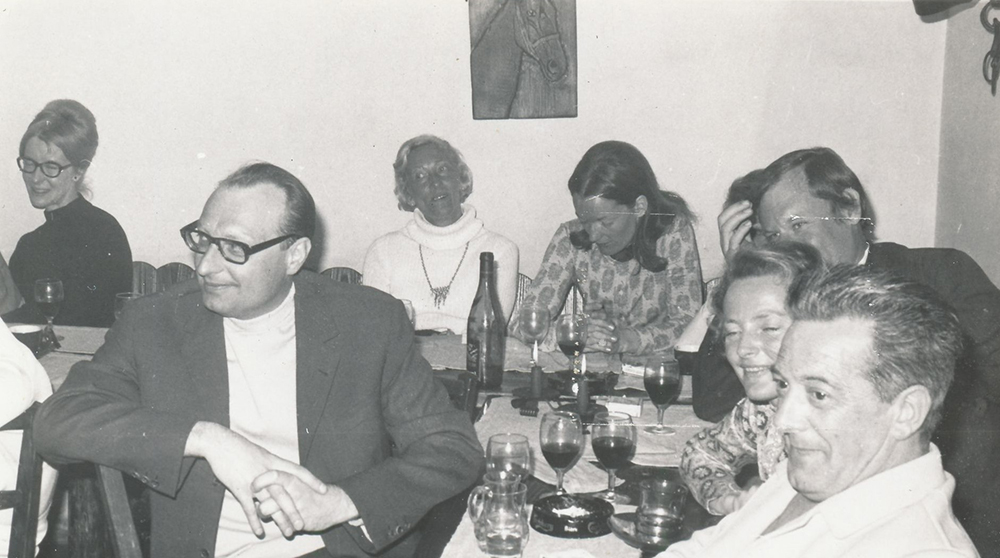
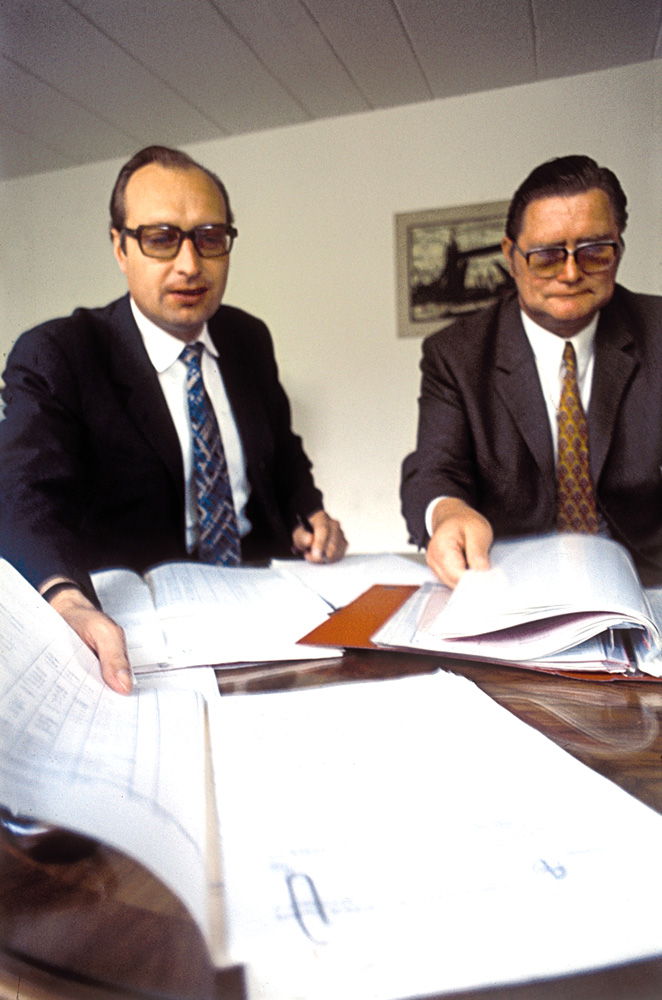
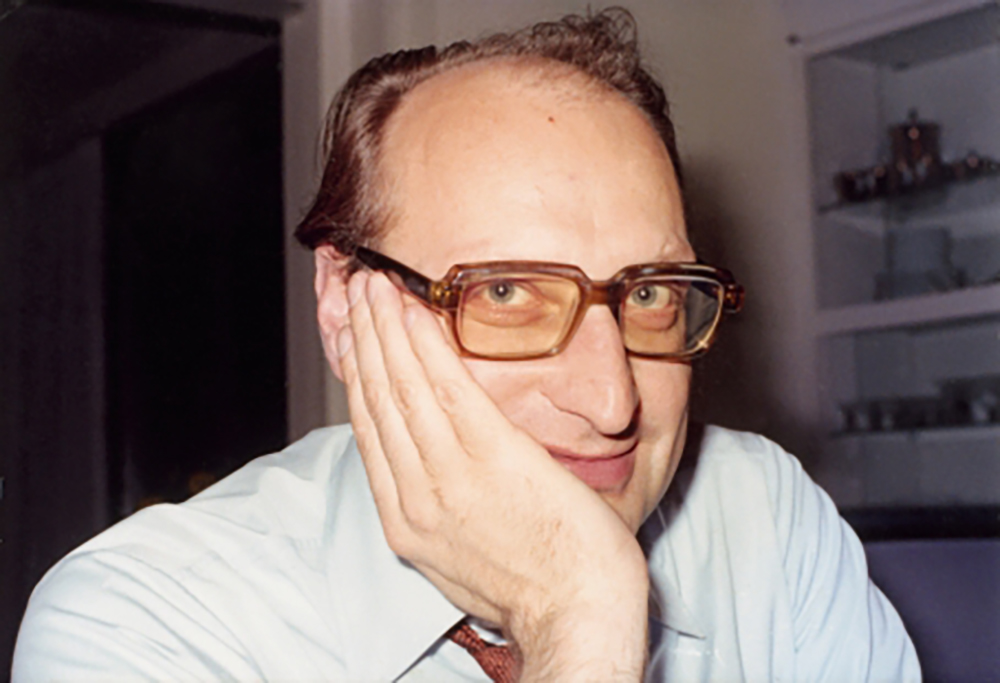
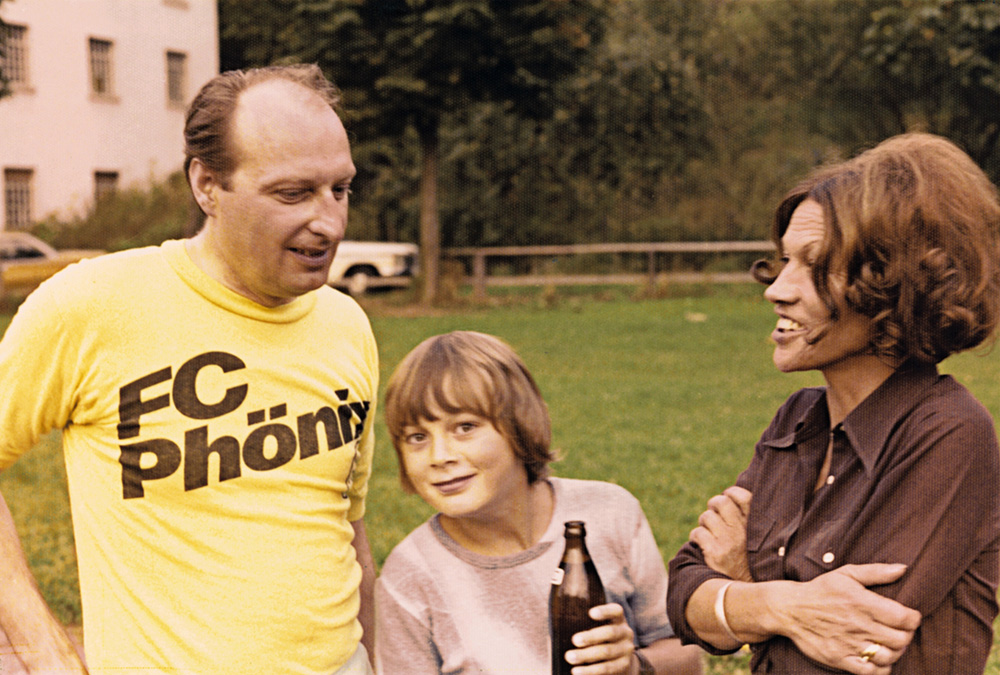
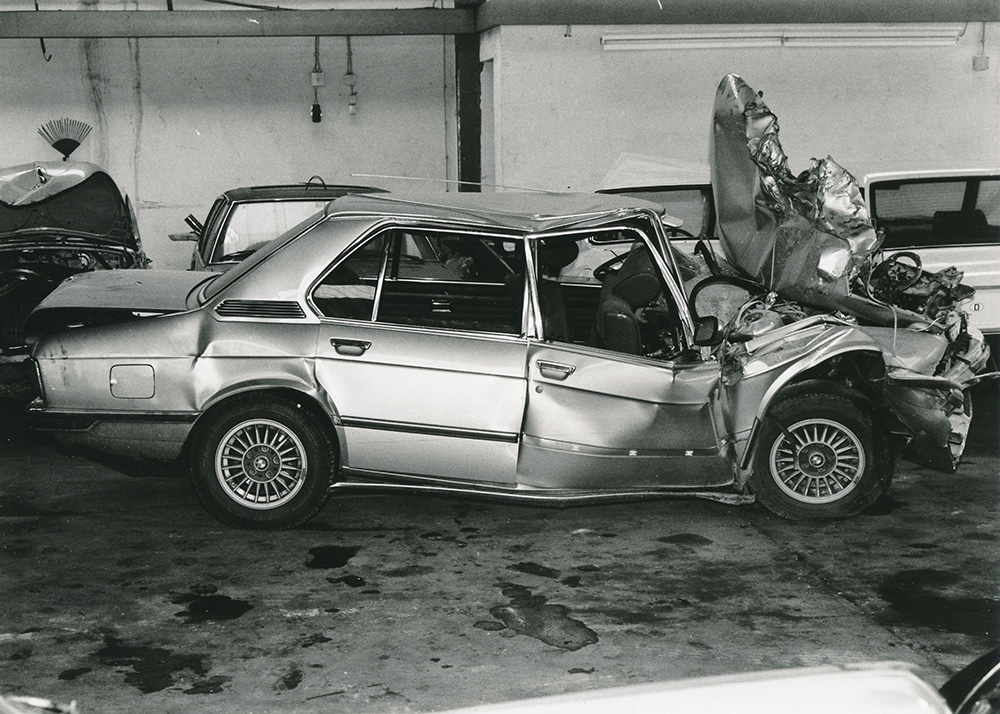
Klaus Eisert assumed his duties as operations and plant manager.
Gerd Eisert – think global, act local
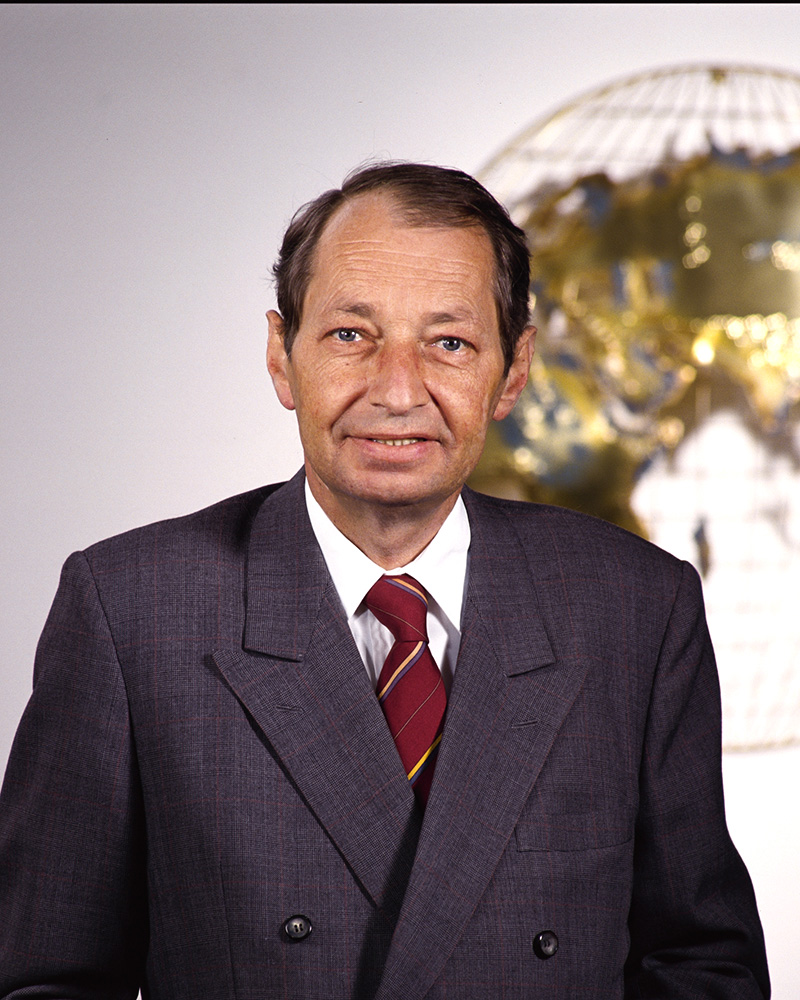
The youngest of the three Eisert brothers attended a commercial college instead of a technical one, where he earned his commercial baccalaureate. While still in school, he ran a car wash service for wealthy motorists on the side.
At the end of the 1960s, after completing his business administration degree in Cologne, Gerd Eisert also followed his father and his two older brothers to Blomberg. In addition to production and development, they were also responsible for sales and marketing. This meant that all the main responsibilities of the medium-sized company were actually distributed.
Yet, young Gerd Eisert recognized the gap. He dedicated himself to the export business, quickly recognizing that this is where the decisive growth opportunities can be found. Around 75 percent of the company’s business focused on Germany, with foreign business served more or less “on the side,” as it were, by national representatives who also distributed all kinds of other electrical products in addition to Phoenix Contact products. The main markets were Switzerland and Austria, as well as Sweden, Denmark, and Finland where electrical suppliers particularly appreciated Phoenix terminal blocks.
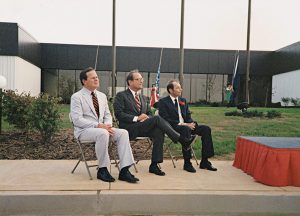
The company hoped to move into new industries, though, especially in machine building, the automotive industry, and the control technology sector. These customers operated on an international level, which brought about a new lineup. Under the direction of Gerd Eisert, at least one new subsidiary has been established every year from 1980 on. Internationalization began with the first three subsidiaries in Switzerland, Sweden, and the USA.
Eisert took a very systematic approach: New companies are always headed by a local general manager responsible for putting together his own team. Gerd Eisert developed an almost unerring instinct for seeking out just the right expert. In the process, he followed the motto: “Think global, act local.” The principle became a success story. All catalogs were translated into the national language. In many cases, the company set up its own warehouses in the countries to allow it to respond appropriately to local needs. For the most part, the required buildings were constructed in the Phoenix Contact style.
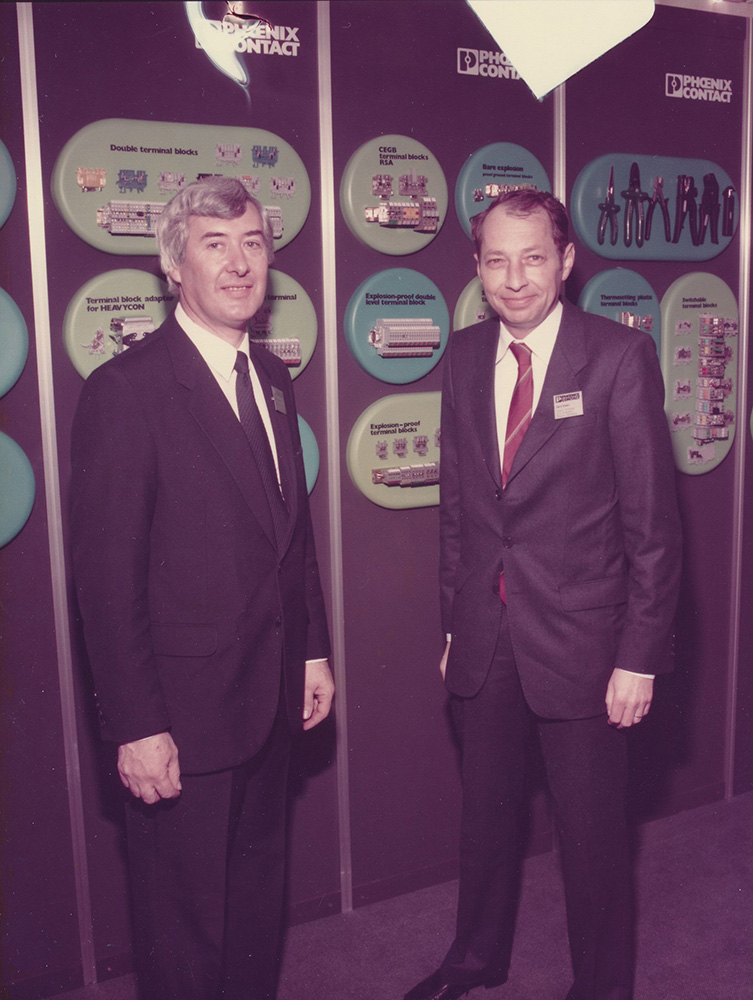
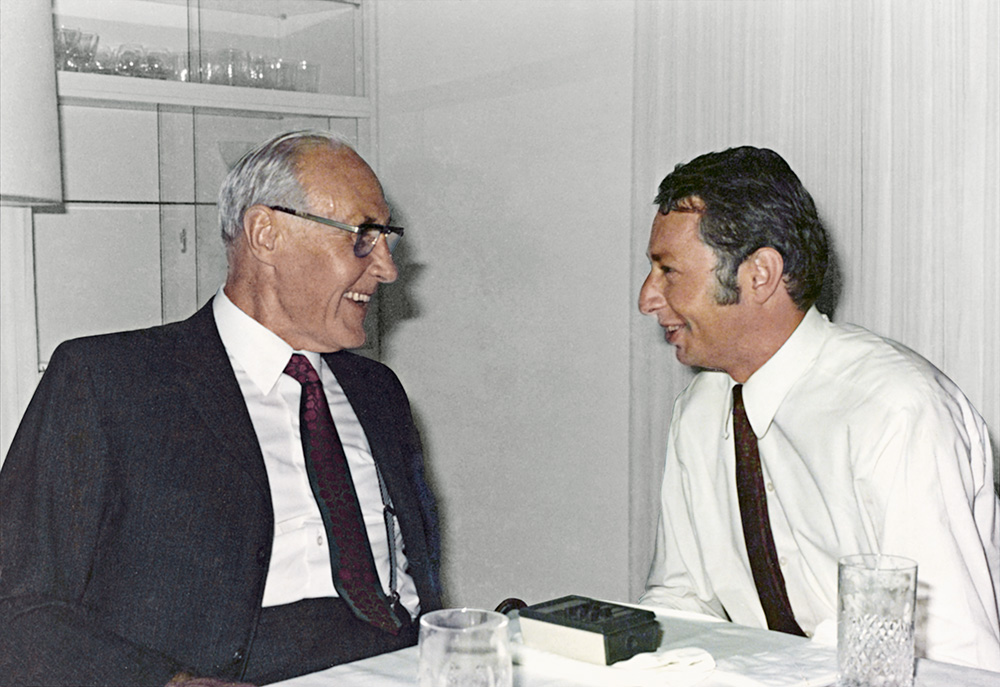
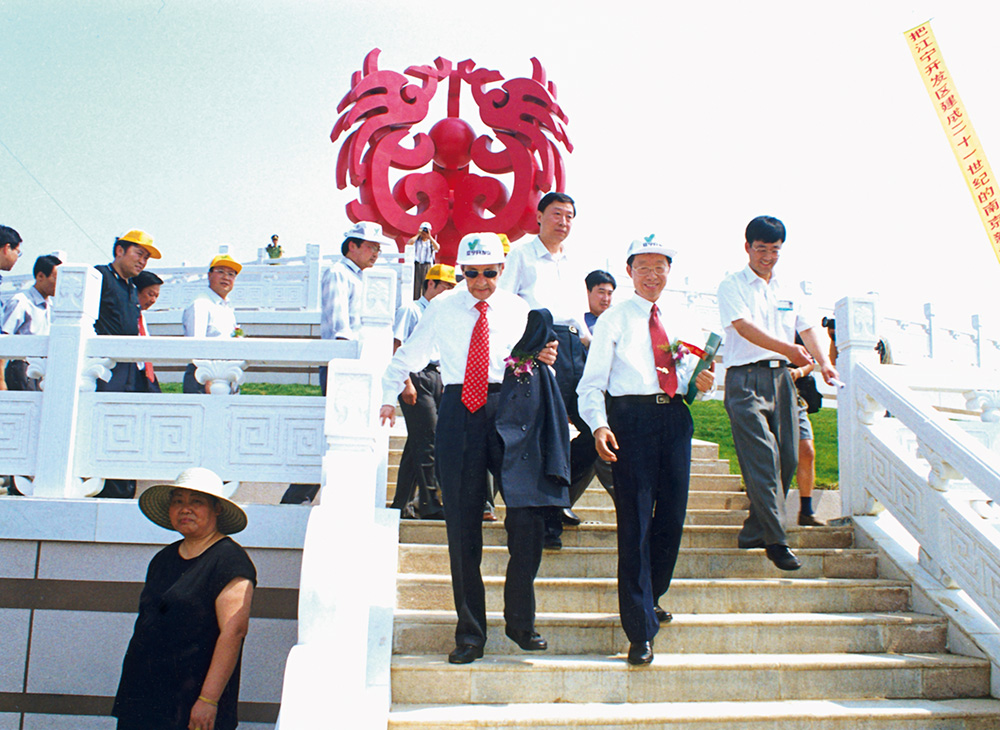
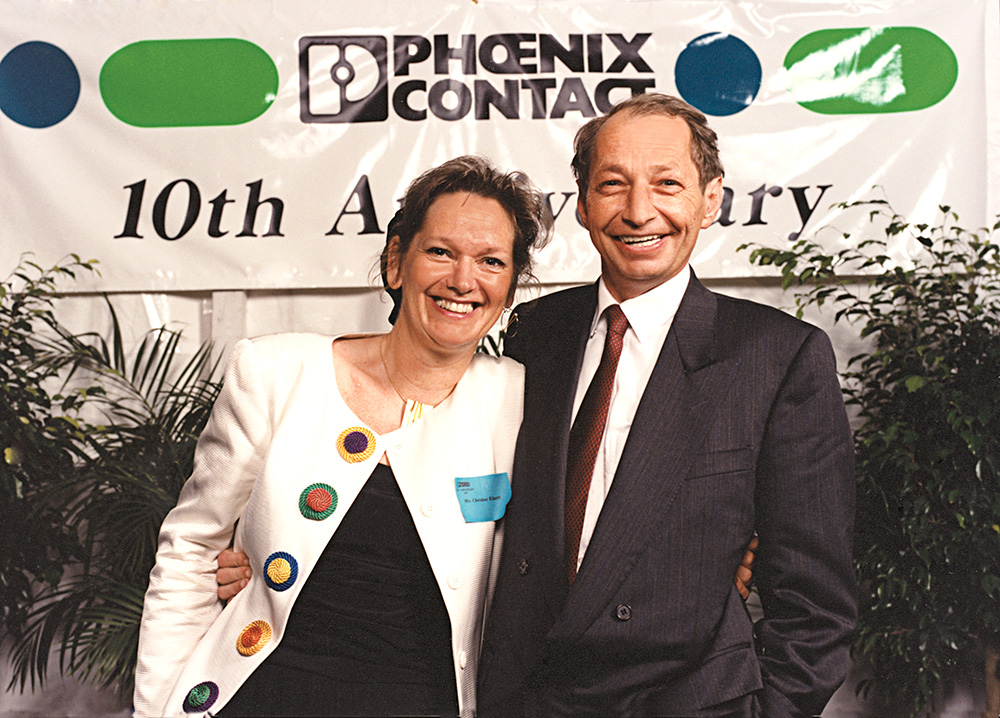
In the mid-1990s, increasing internationalization was also taken into account on a structural level. Sales in Germany ran parallel to international sales. The big bracket was first of all Gerd Eisert himself, who was constantly on the road, organizing trade shows, visiting customers, and coordinating the foreign sales network, while also organizing international meetings.
Because of his diabetes, which was increasingly limiting what Gerd Eisert could undertake, Frank Stührenberg, at the time Director of Sales in Germany, assumed Eisert’s duties in 2001. Gerd Eisert passed away in Blomberg at the end of December 2001.
